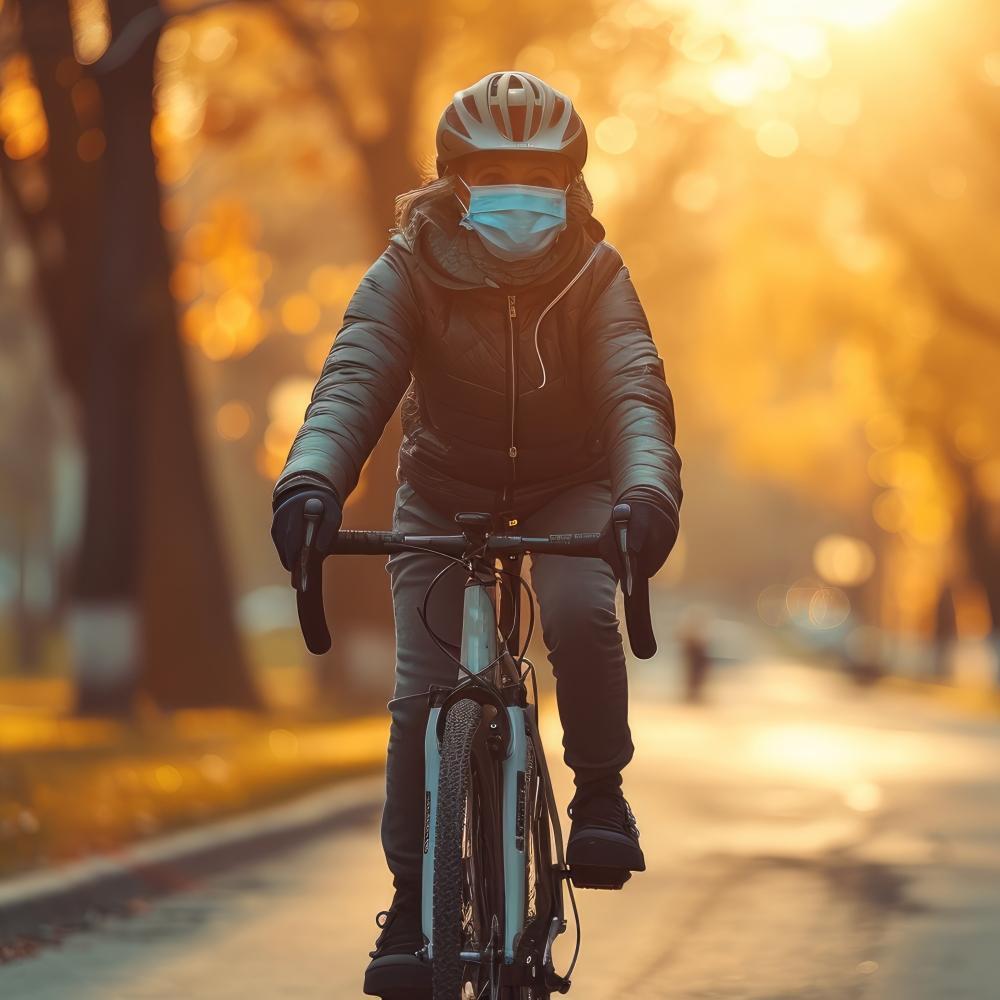
ongoing
Self-regulation, physical environment, or public health containment policies? Explaining physical activity and sedentary behavior during the COVID-19 pandemic

principal investigator / project leader
psychologist, specializing in health psychology
Full bio project value: PLN 549,207
funding source: National Science Center
discipline: psychology, social sciences
location: Wrocław
duration: 2022 2023 2024 2025 2026
Researchers from SWPS University will investigate how public policies and available infrastructure impacted people’s physical activity and behavior during the COVID-19 pandemic.
The project is financed by Poland’s Natoinal Science Center (NCN), project no.: 2021/43/O/HS6/00712.
Project background and objectives
Research has shown that people who were physically active before the COVID-19 pandemic, and maintained physical activity (PA) during the pandemic, are less likely to become infected with SARS-CoV-2 infection, they also have lower risk of severe COVID-19 or COVID-19-related death. A French nationwide cohort study conducted during the COVID-19 pandemic suggests that PA levels decreased in >50% of the population, whereas sedentary time has increased. The links between the trajectory of the COVID- 19 pandemic and changes in PA (such as fluctuations in public policies restricting movement and fluctuations in COVID-19 morbidity and mortality) or the proportion of time spent on sedentary behavior (SB) and PA remain unknown. It is also unclear how/if the public policies, which restricted movement during the COVID-19 pandemic were associated with people’s ability to self-regulate (e.g., by means of forming plans or self-monitoring).
We will investigate how psychosocial and policy-related predictors operate together in objectively explaining the assessed time spent on physical activity, and the proportion of sedentary behavior to physical activity, calculated for the waking time (henceforth called: SB/PA).
The studies will provide a novel insight into the associations between policies and health behaviors (mediated by the physical environment and self-regulatory beliefs). Although the effects of policies on behavior have been investigated, it is unclear how/if the policies influence people’s beliefs about themselves and their perceptions of the environment. We hope to bridge this knowledge gap.

Łuszczyńska, Aleksandra
Principal Investigator
Specialization
psychologist, specializing in health psychology
First and last name
Aleksandra Łuszczyńska
Academic degree or title
Professor
Email
This email address is being protected from spambots. You need JavaScript enabled to view it.
Role in the Faculty
{"funkcja-na-wydziale0":{"Funkcja":"","\u0141\u0105cznik":"","Nazwa w mianowniku":"Faculty of Psychology in Wroc\u0142aw"}}
Role in the Department
{"funkcja-w-katedrze0":{"Funkcja":"","\u0141\u0105cznik":"","Nazwa w mianowniku":"Department of Clinical and Health Psychology"}}
Role in the Institute
{"funkcja-w-instytucie0":{"Funkcja":"","\u0141\u0105cznik":"","Nazwa w mianowniku":"Institute of Psychology "}}
Role in the Research Center
{"funkcja-w-centrum0":{"Funkcja":"Head","\u0141\u0105cznik":"of the","Nazwa w mianowniku":"CARE-BEH Center for Applied Research on Health Behavior and Health"}}
Professor Aleksandra Łuszczyńskapsychologist, specializing in health psychology
Methodology
The research questions will be investigated using a longitudinal design, accounting for 6 measurement points within a span of 8 months (Figure 1), with data collection between September 2019 and spring 2024 to capture the pre-COVID-19 period and the period of pandemic (and, potentially, post-pandemic period). The time span of 8 months and the time gaps between the measurement points were chosen to capture very short effects (weekly changes between T0 and T2), short-term changes (2 months between T0 and T4), and midterm changes (8 months between T2 and T6). We will combine the data that has been collected so far (600 participants aged 12-95 years old) with newly collected data (200 additional participants). The indicators of 8 containment policies (e.g., limits on gatherings, cancelling public events, schools and universities closed) will be applied to test the role of COVID-19 containment policies. This containment index has been calculated for each country for each week since the beginning of the COVID-19 pandemic (the Oxford COVID-19. Government Response Tracker; Hale e al., 2021).
Practical application of results
The project will provide insights into the association between four sets of predictors:
- the ways people perceive their physical environment (defined as built environment in the community, supporting active lifestyle, i.e. pedestrian and cycling facilities, but also home design and equipment promoting PA or SB) or the objective characteristics of the physical environment, such as the existence of public gyms, swimming pools, the length of cycling paths, etc.
- beliefs about ability to exercise in spite of barriers, self-monitoring one’s own PA and SB levels, and planning when, where, and how to exercise
- habits, defined as automaticity in PA and a lack of awareness of engaging in PA or SB
- containment policies introduced during the COVID-19 pandemic (including restriction of movements, closure of exercise facilities) enforced in the country in the week of data collection.
The results will be presented in a doctoral thesis, based on a series of three articles published in acclaimed international journals. The studies will provide a novel insight into the associations between policies and health behaviors (mediated by the physical environment and self-regulatory beliefs). Although the effects of policies on behavior have been investigated, it is unclear how/if the policies influence people’s beliefs about themselves and their perceptions of the environment. We hope to bridge this knowledge gap.